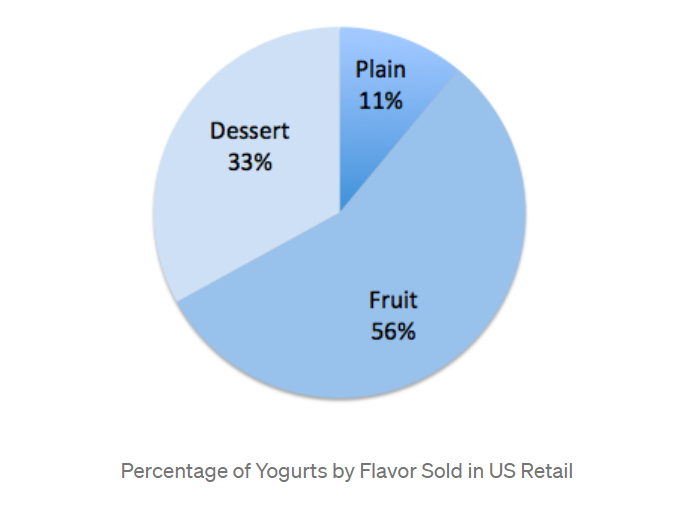Yogurt rich in proteins, calcium, and active bacteria is among the most beneficial products for humans’ health. Nevertheless, it is not as simple as it seems to be. Recently, manufacturers have started to attract the customers’ attention with flavored yogurts. Being aware of the product’s value, people decided that yogurts with fruits and berries are just as healthful as plain ones. A popular myth has grown rapidly from this idea, so it is essential for the buyers to tell the truth from the lie.
Indeed, it is easy to give in to the temptation and buy a product with banana or strawberry because they are considered good for health and should intensify the yogurt’s value. However, putting fruits and berries into a dairy product makes it more perishable, which is unprofitable for manufacturers. That is why many of them select canned fruit puree or jam with huge amounts of sugar. That is why even if they claim to be “all-natural”, flavored yogurts will be much higher in sugar and carbs (Dolson, 2020). Moreover, to make the product more appealing to the consumers’ taste, manufacturers often use artificial sweeteners.

Despite being free of calories and sugar, these additives negatively impact the perception of how foods taste, making natural products seem less delicious. Artificial sweeteners have been shown to decrease satiety and affect insulin secretion (Pearlman et al., 2017). Thus, despite being almost imperceptible for consumers, the changes in the list of the yogurt’s ingredients may result in health issues.
The shelves of shops around the world are filled with flavored yogurts. More and more people tend to buy them instead of plain dairy products, considering them a decent replacement. However, even though their taste is delicious and intense, flavored yogurts only create an illusion of healthy nutrition. Manufacturers make these processed foods full of sugar and artificial sweeteners, which significantly decreases their nutritional value.
References
Dolson, L. (2020). Choosing the right yogurt for a low-carb diet. Very Well Fit.
Pearlman, M., Obert, J., & Casey, L. (2017). The association between artificial sweeteners and obesity. Current Gastroenterology Reports, 19(12), 64. doi:10.1007/s11894-017-0602-9